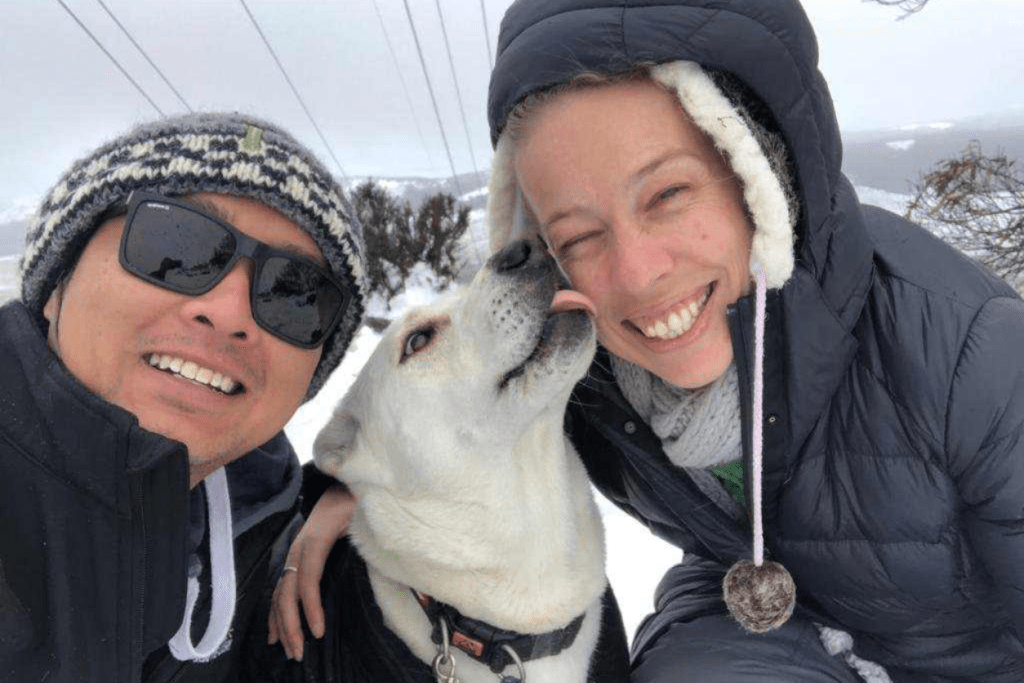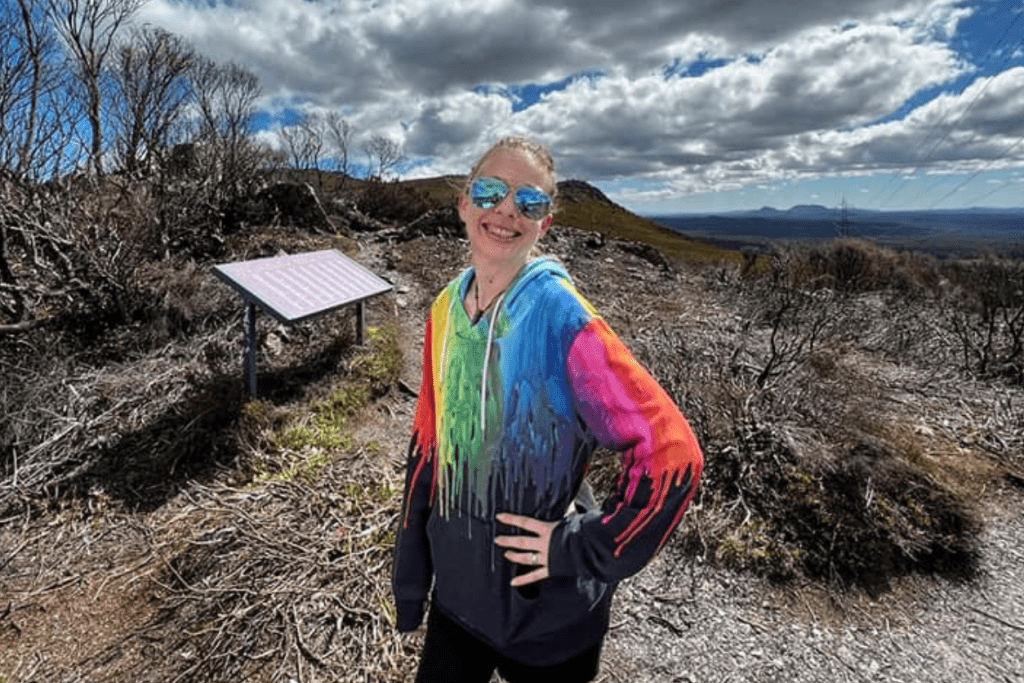Bianca’s journey
In 2018, life was just beginning to fall into place for Bianca. She had recently adopted a puppy named Chuck, had plans to study psychology, and felt excited about her future. Then came the car crash. “I woke up in hospital six days later, I had no idea what had happened.”
The crash
The crash left Bianca with life-threatening injuries: a shattered femur and pelvis, two broken ribs, a 7-centimetre laceration above her right eye, and a mild to moderate traumatic brain injury. Specifically, a diffuse axonal injury which is when the brain gets shaken or twisted, causing tiny tears in the brain’s nerve fibres. She spent nearly three months in two different Melbourne hospitals. “I was unconscious for the first six days. I don’t actually remember anything until the 11th night.”
Despite the severity of her injuries, Bianca found humour even in the darkest moments. “I’ve been told stories of what I was like. Apparently, I was mouthing off at people for not working hard enough. Keeping everyone in line.” Rehabilitation became her new full-time job. “I was more busy than I’d ever been, but I was also the most injured I’d ever been,” Bianca says. “Rehab was 9 to 5, physio, speech therapy, hydrotherapy, OT… everything.”
What helped her push through was an unexpected companion. “My then-husband had bought me a dog, Chuck, just a few weeks before the crash. By the time I got home, he’d gone from a tiny puppy to huge. He really gave me the drive to try my best in rehab and hurry up and get home.” But coming home brought more upheaval. Just two weeks after she was discharged, her marriage ended. “That was like a double trauma, really. The accident, then the breakup.” Fortunately, her family were a huge support. “God bless their cotton socks, my parents broke their lease and found a rental that worked for me and Chuck. I lived with them for about three years.”
Getting back to study
Bianca was determined to continue her studies. Early in 2019, she consulted a course counsellor since she was nearing completion of her final unit for the University Preparation Program (UPP). Fortunately, the University of Tasmania allowed her to enrol in her next course. She enrolled in a Bachelor of Psychological Science at the University of Tasmania, part-time. However, returning to study wasn’t easy. “I had a full-on anxiety crash around Week 5, I wasn’t sleeping, wasn’t eating, couldn’t concentrate. Eventually I was taken to the hospital.”
After getting support and medication that made her hungry “I basically ate my parents out of house and home and just felt like 80% better.” She started learning to manage the cognitive challenges of a brain injury. “I worked out that if I start feeling food disgust and can’t eat, I need to force myself to eat a little. Otherwise, it snowballs into no sleep, panic, and no focus.” Taking advice from her occupational therapist, Bianca reduced her study load and accessed supports from the university like a Learning Access Plan (LAP). “That LAP has been a lifesaver. Without it, I don’t think I would have made it as far as I have. It’s been eight years of study now.”
As she progressed, her goals shifted. “I realised I probably wouldn’t make a good psychologist, I’ve got memory retrieval issues. I think that’s a bit unfair on clients.” But one unit changed her outlook: “It was about how to conduct psychological research. That’s when I thought, maybe I can help even more people this way.” Bianca now aims to pursue research into non-pharmacological therapies for people living with TBI. “I want to help as many people as possible. Research felt like the path to do that.”
Moving forward
Outside of university, Bianca’s advocacy has thrived. “In 2022, I started volunteering with the Brain Injury Association of Tasmania, running TBI coffee catch-ups on the North West Coast.” She’s also on the Talk TBI Advisory Group at UTAS and the Lived Experience Advisory Board (LEAP) with Monash University. “It’s funny, during rehab, I was a participant in one of [Professor] Jennie Ponsford’s studies. Now I’m on her advisory board.”
Bianca also discovered an unexpected new passion: participating in pistol shooting matches. “My partner came up with the idea. I couldn’t play most sports, but I’ve been doing pistol competitions for several years now.” Through it all, her greatest support has been her partner who she met at near end of 2019. “He’s the most supportive and loving person anyone could ask for. I study 6 days a week, 8 to 10 hours a day, so I don’t work. But he takes care of us financially, emotionally, everything. He’s the best thing that’s come into my life.”
For others living with brain injury, Bianca has simple but powerful advice:
“It’s not the end. You can still develop strategies, reach out for help, and find ways to achieve your goals. It might be a different path than you expected, but that doesn’t mean it’s a lesser one.”
And Chuck? He’s still by her side. “He’s having a snooze right now,” she says with a smile. “He’s been there through it all.”

